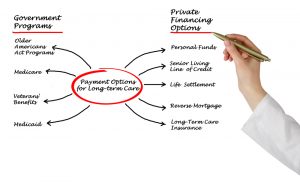Did you know that if you transfer certain assets in periods before applying for Medicaid due to low income that you might have to go through a penalty phase? This is known as the lookback period and is in place to discourage people who are trying to qualify for Medicaid quickly from spending down or giving away all their assets just to meet those grounds. 
Bear in mind that knowing about the lookback period and using strategies to prepare to qualify for Medicaid with the help of an estate planning lawyer is both legal and ethical. This can help you protect the assets you’ve worked hard to build over the course of your life without the fear of them getting decimated by an unexpected long term care event.
In New Jersey, that lookback period is five years and that clock starts as soon as the applicant would become eligible for NJ Medicaid. Penalties can apply if the assets was sold for less than fair market value or if it was given as a gift.
Penalties are calculated by looking at the total amount of any gift that falls into that lookback period and then dividing it at $343.85 for each day. That number then means the applicant must wait that many days before applying for Medicaid benefits.
Note that New Jersey regulations can change from one year to another, and one of the best things you can do is to have a comprehensive estate plan and Medicaid plan in place to prevent problems. This means consulting with a knowledgeable NJ Medicaid planning lawyer today. While you might not need Medicaid benefits just yet, knowing how you could qualify in the future is a key part of your elder law strategy.



















